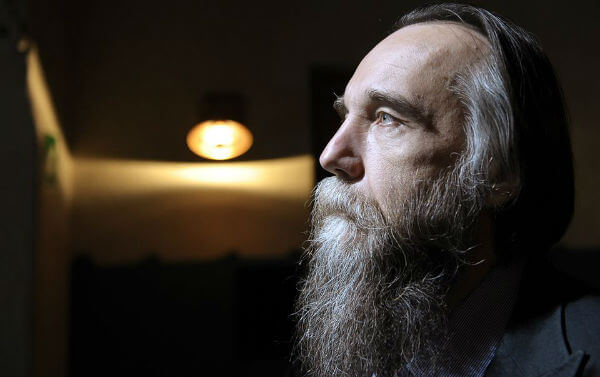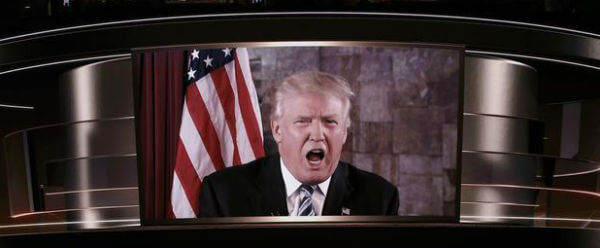Ivan Krastev and Stephen Holmes write: On the surface, Trump’s repeated assertion that America’s allies are swindling the United States, which reflects a piddling fee-for-service conception of alliances in general and especially of the arguably obsolete NATO alliance, might seem like music to Putin’s ears. But if we more closely examine the political earthquake of Nov. 8, we will see why a shared illiberalism will do little or nothing to reduce tensions between Russia and the United States.
First of all, the populist insurgency that just overthrew the American political establishment represents the very sort of resentment-fueled instability that frightens Moscow most. An ardent opponent of regime change, Putin has been subsidizing populist insurgencies in various European countries not to replace the governing parties but simply to sap the EU’s unity and coherence. Similarly, any hypothetical clandestine Russian involvement in the American presidential campaign was presumably aimed at weakening Clinton before she acceded to the presidency as well as discrediting the American political model in general, not at electing Trump. Nothing would unnerve the Kremlin more than a new rash of Orange Revolutions. The fact that they will now be anti-liberal rather than liberal revolutions is no real consolation. Let’s assume that Trump is being sincere when promising Putin non-interference in the domestic politics of other countries. By inspiring emulators, his seditious example will nevertheless be inherently threatening to ruling elites around the world. And while Putin has every reason to rejoice at Trump’s snide dismissals of NATO, he will be less enthusiastic about Trump’s insistence that all of America’s allies must increase their defense budgets to the promised 2 percent. Spooked by a seasoned dealmaker’s calculated bluff that he will otherwise cut them loose, the truant members of NATO are very likely to do just that.
Second, the U.S. election delivered a fatal blow to the dominant narrative designed to legitimate the Putin regime in the face of Russia’s poor and worsening economic conditions. According to this narrative, all Russia’s problems result from a global liberal conspiracy, led by the United States, to humiliate Russia and prevent it from assuming its rightful place in the world. But in an election covered 24/7 by Russian state media, the candidate who was repeatedly branded as “Putin’s puppet” was elected president by the American people. The way this democratic outcome has sabotaged Putin’s legitimacy formula can be illustrated by the comments of some of Russia’s leading nationalists. In a series of tweets after the election, Alexander Dugin declared that “Anti-Americanism is over”.
And this is not because it was wrong but exactly the opposite. It is because the American people themselves have started the revolution against precisely that aspect of the USA that we all hated. Now the European ruling elite as well as the part of the Russian elite that is still liberal cannot be blamed as before for being be too pro-American. From now on, it should be blamed for being what it is: a corrupt, perverted greedy gang of bankers and destroyers of cultures, traditions, and identities.
But the end of anti-Americanism, prematurely fêted by Russian nationalists, promises to be the beginning of a destabilizing crisis inside Russia. A principal source of Putin’s legitimacy since he returned to the presidency in 2012 has been the obsessively repeated accusation that the United States is a hypocritical superpower, publicly espousing universal values but acting secretly in pursuit of narrow national advantage. Trump’s embrace of “America First,” whatever it means in practice, makes nonsense out of Putin’s endlessly recycled excoriations of America’s inveterate hypocrisy.
On a more practical level, Trump’s election obliges Putin to own the chaos he has sowed in both Syria and eastern Ukraine. Standing up to the United States was arguably a principal motivation for Putin’s interventions in both countries, justified to the Russian public largely as ways of sticking a finger into America’s eye, revealing its weakness and hypocrisy, and teaching it that Russia cannot be ignored. But the president-elect’s expressed willingness to offer Putin a wide berth in both arenas greatly diminishes the domestic political value of the two incursions as sources of national pride. Here again, Trump’s embrace of Putin may soon come to resemble a kiss of death.
Third, Putin’s reassertion of Russia’s heft on the international stage has depended on his leading the revolt against American-orchestrated globalization. This picture has no doubt been scrambled by Trump’s eccentric argument that globalization is a conspiracy not by, but against, the United States. But the more important development is that the uncontested leader of the deglobalizing world, the most visible counter-revolutionary in the worldwide fight against liberal internationalism, will soon be the president of the United States, a figure immensely more powerful and imitation-worthy than the president of Russia. The unbridled enthusiasm with which Europe’s anti-establishment populists have greeted Trump’s victory reflects the fact that he is perfectly credible as a populist insurgent in a way that Putin, who has dominated the election-proof Russian state for almost two decades, is not. The rise of anti-EU populism in Europe could even have the paradoxical consequence of drawing Trump into a new trans-Atlantic alliance of populist democracies based on a new set of illiberal “shared values.” [Continue reading…]



